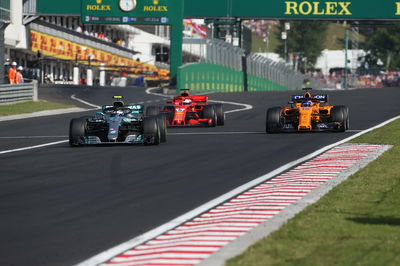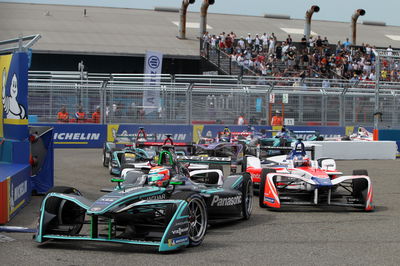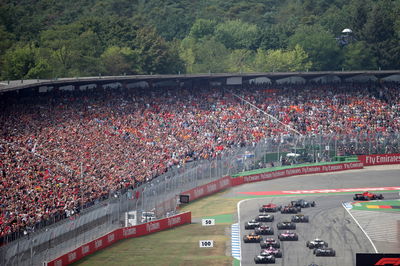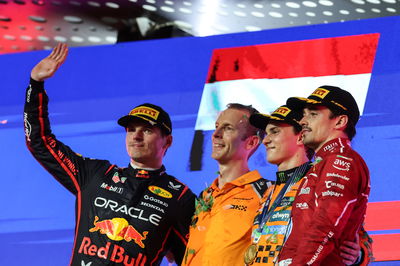F1 could go fully-electric in the next decade – Brawn
Formula 1 could follow Formula E in becoming an all-electric championship within the next decade if it provides a greater spectacle for fans, according to sporting boss Ross Brawn.
F1 ditched normally-aspirated V8 engines for a switch to hybrid V6 power units in 2014 and is currently working towards a new set of engine regulations for 2021, though the core philosophy of the V6 power units in circulation will be retained.

Formula 1 could follow Formula E in becoming an all-electric championship within the next decade if it provides a greater spectacle for fans, according to sporting boss Ross Brawn.
F1 ditched normally-aspirated V8 engines for a switch to hybrid V6 power units in 2014 and is currently working towards a new set of engine regulations for 2021, though the core philosophy of the V6 power units in circulation will be retained.
Formula E became the first form of motorsport to go fully-electric following its inception in 2014 and is set to introduce an upgraded ‘Gen2’ car including a greater energy store and power levels for the series’ fifth season, which begins in December.
The series has also attracted a host of new manufacturers including Jaguar, BMW and Nissan in recent years, while major German marques Mercedes-Benz and Porsche are planning to join the championship from 2019.
Electric power has not previously been a consideration for F1, but its ever-increasing popularity and road-relevance means Brawn is refusing to completely rule out a change in the sport’s direction in the future.
"I think we have to respect what Formula E is doing and what it's achieving," Brawn told F1 Fan Voice in an interview. "But if you look at the magnitude of the two they are not really comparable; the amount of fans we have and the appeal of Formula 1, Formula E is still very junior in that respect.
"I think Formula 1 will evolve in the direction that has the right balance of sport, relevance and engagement with the fans. If in five years' time or ten years' time there is a need, desire or wish to have a different type of power unit in Formula 1 then we will do it. There is nothing to stop us having electric Formula 1 cars in the future.
"At the moment they don't deliver the spectacle, and with all due respect if you go to a Formula E race it is a pretty junior category of motor racing,” he added. “It's a great event in terms of all of the stuff that is going on around it, but the race itself is pretty tame when you compare it to a Formula 1 event. The cars are not particularly fast, you don't have the personalities involved but they are doing a fabulous job at putting on an event and making it a street party.

"Formula 1 is different to that, Formula 1 is the pinnacle of motorsport, the speeds we do, the calibre of drivers we have and the teams we have, and if that moves in five or ten years' time to a different power source then we will do it if that is most appealing and achieves what we want to achieve. I don't see Formula 1 being locked into internal combustion engines forever, but who knows where we are in ten years.
"Ten years ago I don't think many people would be able to predict where the world is now and therefore I don't know where we will be in ten years, but Formula 1 will move in the right direction."
Despite his well-documented preference of older-spec F1 engines, Brawn stressed F1 is highly unlikely to take a “step back” and return to normally-aspirated power units given how the sport’s current manufacturers have committed to the current regulations.
"There is a part of me which would love that to happen,” he said. “I do love the old F1 engines but I don't see how we could make that step back without such a radical revolution that would really polarise Formula 1 and split it apart.
"The manufacturers we have in Formula 1 at the moment are committed to the engines we have now, and should we have a revolution? I don't think so.
“I'd love to have those engines but it's not going to happen, so we need to evolve the engines we have now and learn the lessons from introducing these engines to see how we can take them in a direction that is a bit more appealing to the fans."












